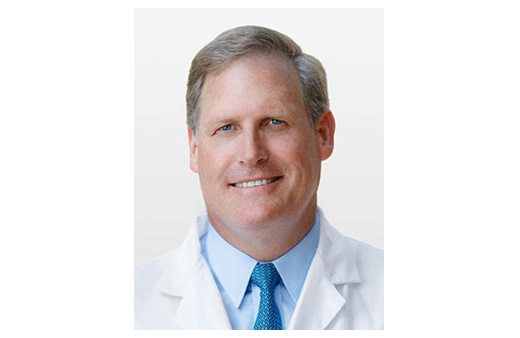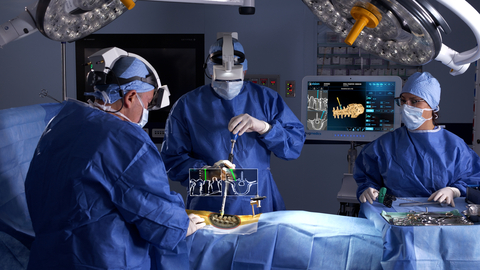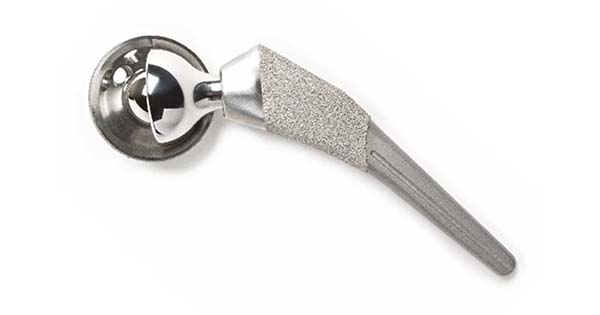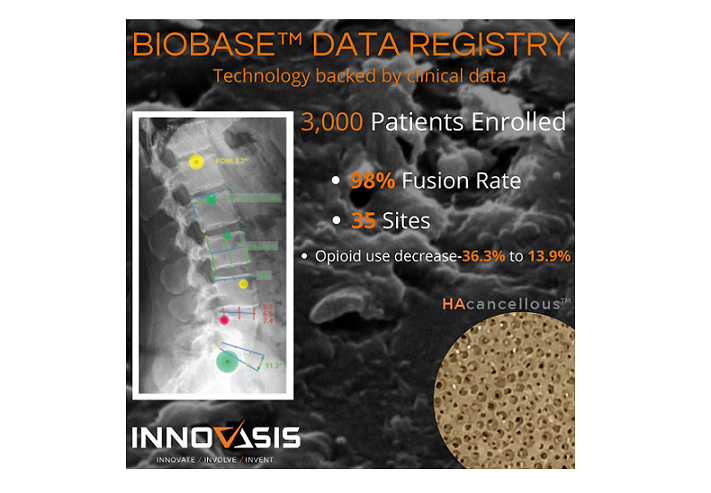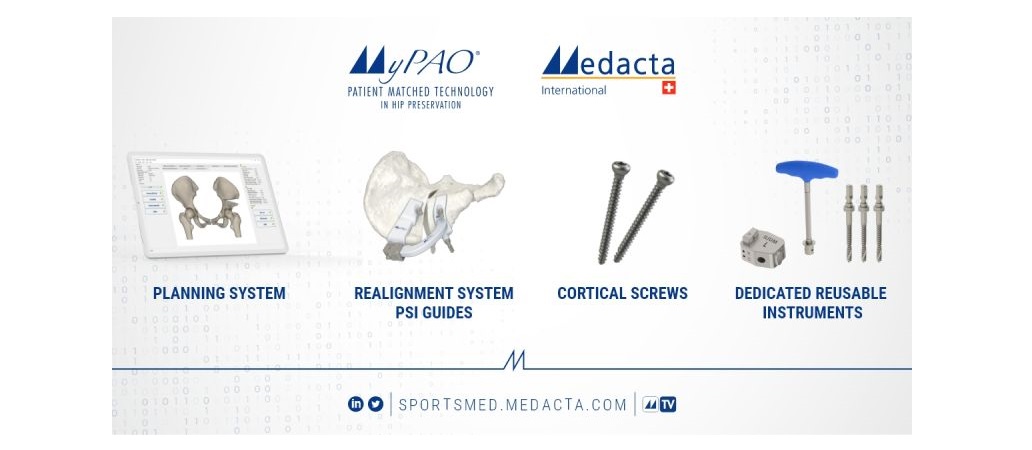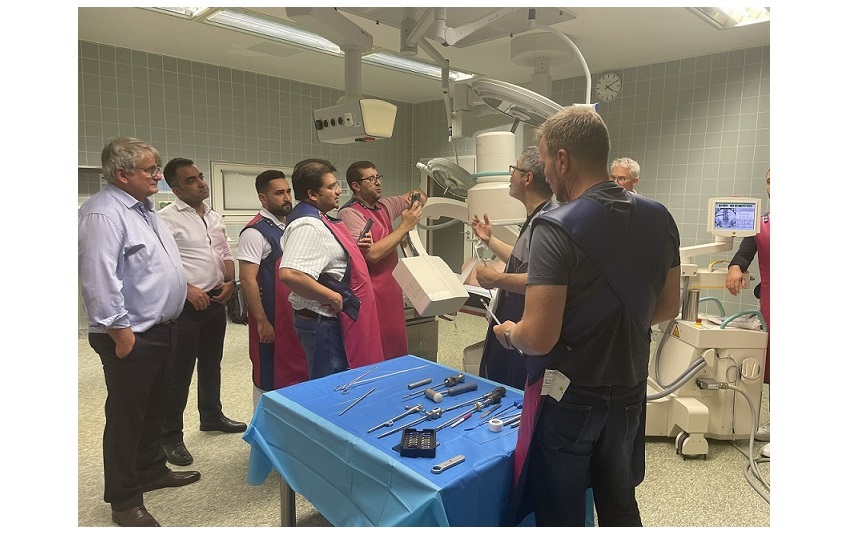Theodore A. Blaine, MD
System Allows Conversion to Reverse Shoulder Replacement Prosthesis
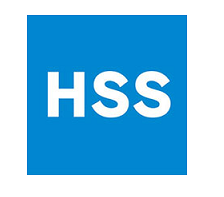
NEW YORK, June 27, 2023 /PRNewswire/ — Theodore A. Blaine, MD, a shoulder and elbow surgeon at Hospital for Special Surgery (HSS), has performed the world’s first implantations of a stemmed elliptical head prosthesis for anatomic shoulder replacement surgery. The breakthrough procedure provides the most anatomic solution for patients with arthritis, and was performed in May at HSS in Stamford, CT. HSS has a collaborative relationship with Stamford Health.
This innovative surgery revolutionizes conventional anatomical stemmed total shoulder replacement, using an elliptical-shaped head which is anatomically matched to the ovoid shape of the ball-and-socket joint in the human shoulder. The stemmed elliptical head enables surgeons to readily convert an anatomic total shoulder replacement prosthesis to a reverse shoulder replacement prosthesis, should a revision surgery ever be needed in the future. Dr. Blaine is the first surgeon in the world to use this advanced technology, placing an elliptical head on a stemmed implant.
Anatomic total shoulder replacement arthroplasty is often advised for patients with osteoarthritis. This surgery replaces the ball and socket with artificial components, allowing younger patients to stay active and play sports. Reverse shoulder replacement is advised when patients have both arthritis and a deficient rotator cuff. The natural positions of the ball and socket are switched. A metal ball implant is placed where the patient’s own natural socket was, and a plastic socket implant is placed on the top of the humeral head.
For the past 50 years, since they were first introduced by Dr. Charles Neer in the 1970s, the heads of the prostheses used in shoulder replacement surgeries have been spherically shaped. In the last several years however, two manufacturers have introduced elliptical heads which may improve range of motion and healthy shoulder functionality over spherical heads, according to some biomechanical and clinical studies.
“The main reason for implanting a convertible prosthesis in a patient’s shoulder is that an anatomic shoulder replacement provides a more normal shoulder than a reverse prosthesis in active patients. However, if a patient ever had an injury or tear of the rotator cuff in the future, we now have better options with a stemmed prosthesis,” explains Dr. Blaine. “Up until now, we haven’t had convertibility from a standard ball-and-socket prosthesis to a reverse prosthesis. The stemmed elliptical head prosthesis for anatomic replacement gives us the ability to make this conversion in a more expedient way without having to remove the stem.”
“One of our primary goals at HSS is to reproduce or recapitulate the human anatomy,” Dr. Blaine adds. “The normal anatomy of the shoulder joint is an egg-shaped head, not a sphere. This new approach allows us to get closer to replicating the normal function of the human shoulder so patients can remain active well into their later years.”
These first procedures using elliptical head prostheses at HSS Stamford have been successful, and the technology is now being used at multiple centers throughout the U.S. Dr. Blaine also reports that HSS will soon be conducting a motion analysis study in conjunction with other institutions to compare shoulder replacement patients who received oval-shaped heads versus those who received spherical heads.
Now in its 160th year, HSS treats patients from more than 80 countries and all 50 states. It has been ranked no. 1 for orthopedics in the world for the past three years, and in the nation for the past 13 years. HSS has been top ranked for both orthopedics and rheumatology for the past 31 consecutive years by U.S. News & World Report. HSS performs 90% more orthopedic surgeries than the next leading hospital but maintains the lowest readmission rates and among the lowest infection and complication rates in the nation.
About HSS
HSS is the world’s leading academic medical center focused on musculoskeletal health. At its core is Hospital for Special Surgery, nationally ranked No. 1 in orthopedics (for the 13th consecutive year), No. 3 in rheumatology by U.S. News & World Report (2022-2023), and the best pediatric orthopedic hospital in NY, NJ and CT by U.S. News & World Report “Best Children’s Hospitals” list (2022-2023). In a survey of medical professionals in more than 20 countries by Newsweek, HSS is ranked world #1 in orthopedics for a third consecutive year (2023). Founded in 1863, the Hospital has the lowest readmission rates in the nation for orthopedics, and among the lowest infection and complication rates. HSS was the first in New York State to receive Magnet Recognition for Excellence in Nursing Service from the American Nurses Credentialing Center five consecutive times. An affiliate of Weill Cornell Medical College, HSS has a main campus in New York City and facilities in New Jersey, Connecticut and in the Long Island and Westchester County regions of New York State, as well as in Florida. In addition to patient care, HSS leads the field in research, innovation and education. The HSS Research Institute comprises 20 laboratories and 300 staff members focused on leading the advancement of musculoskeletal health through prevention of degeneration, tissue repair and tissue regeneration. The HSS Innovation Institute works to realize the potential of new drugs, therapeutics and devices. The HSS Education Institute is a trusted leader in advancing musculoskeletal knowledge and research for physicians, nurses, allied health professionals, academic trainees, and consumers in more than 165 countries. The institution is collaborating with medical centers and other organizations to advance the quality and value of musculoskeletal care and to make world-class HSS care more widely accessible nationally and internationally. www.hss.edu.
SOURCE Hospital for Special Surgery


